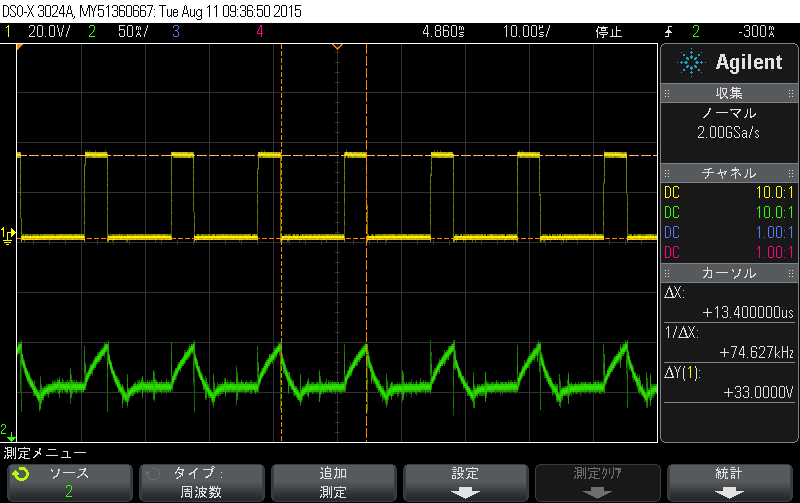Hi
My customer is using DRV8880.
He has issue of a noise(sound) of motor when motor stop.
The tone as the "pee" or "kee". *This is an onomatopoeic word of Japanease.
Setting is the following.
- TOFF : 10us
- Decay : Adaptive decay
- Step : 1/4
- VM : 33V
- chopping current : 0.5A
- torqu: 100%
I confirmed waveform of operating current at occurring issue.
Current ripple frequency was 72kHz.
I think a noise(sound) cause is current ripple.
In case of current ripple frequency is under 20kHz, excitation sound by current ripple is heard directly from motor coil.
But in case of current ripple frequency is over 20kHz, I guess that something in the motor vibrates by sympathizing with a frequency of current ripple.
What do you think of this issue?
I can't understand why noise(sound) is heard from motor at over 20kHz current ripple frequency.
Could you advice me about this, please?
Best regards
Shimizu


